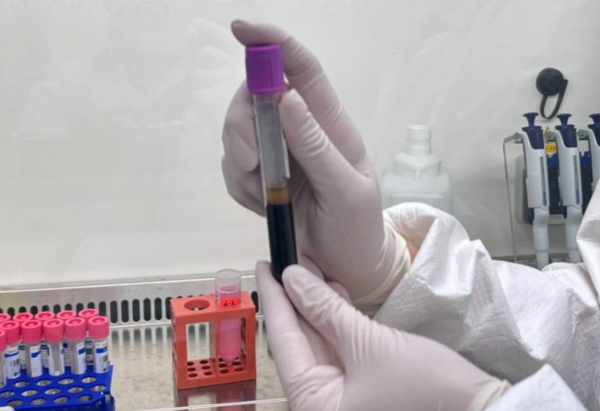HIV reduction campaign targets Thai youth

Many people, especially youth, perceive the use of condom as hindering the enjoyment of sex, despite the variety available, from extra slim to scented and fancy surfaces.
Therefore, HIV infection rates among youth are alarmingly high, primarily due to unsafe sexual practices, said Dr Suchada Jiamsiri, Deputy Director of the Division of AIDS and STIs at the Ministry of Public Health’s Department of Disease Control.
“This encompasses individuals of diverse sexual orientations, including both males with males and females with females. Regrettably, these sexual encounters lack necessary protection”
Suchada highlighted that, while there is a high number of HIV infections among young people, the role of injected drug abuse, a potential source of infection, has decreased to less than 10% of the cases.

Among youth aged 15-24, 14,000 cases of Syphilis and Gonorrhoea have been reported in the past 5 years. Despite the availability of protection, their use remains unpopular, especially among young people.
Suchada aims to help young people understand the importance of balancing risk and pleasure.
Keep condoms at hand
Many young people engage in sexual activities without due consideration for disease prevention. This behaviour persists, despite the accessibility of condoms, which can prevent STD transmission by up to 98%.

“The Children and Youth Council of Thailand is actively educating young people on AIDS and sexually transmitted diseases prevention. Promoting condom use is a key strategy, as it is believed that HIV infections among youth often result from emotional factors leading to neglect of prevention”, said Vice President of The Children and Youth Council of Thailand, Sutee Chudcha.
He added that, in the past 2-3 years, an increase in sexually transmitted diseases (STIs) among youth, such as Syphilis, Gonorrhoea, Chlamydia and HIV, has been identified. Unintended pregnancies have, however, seen a decrease.
The Division of AIDS and STIs at the Department of Disease Control, in collaboration with The Children and Youth Council of Thailand has launched campaign is called “Keep condoms at hand and use them 100%.” It serves as a warning to young people about the risks of contracting diseases, especially HIV, through unprotected sex.
HIV self-test kits
“As soon as individuals become aware of being at risk, they should undergo immediate HIV testing. Presently, national health insurance cover this, with registration available via the Pao Tang application. HIV self-test kits can be requested at hospitals”, Suchada noted.

For those at risk, prompt diagnosis of infection is crucial. Although HIV infections have decreased, due to improved understanding and reduced stigmatisation, widespread HIV testing services are still lacking. Unlike common annual medical check-ups, HIV testing should occur whenever there is a risk, without waiting for symptoms to develop.
Dr. Nittaya Phanuphak, the Executive Director of the Institute of HIV Research and Innovation (IHRI), emphasised that “Self-prevention is a basic responsibility to oneself and to others. Regardless of the prevention methods chosen, safe sex is paramount. HIV testing is the beginning of treatment. Testing should not only target youth, but all groups, including transgender individuals and sex workers, who are at higher risk.”
Advanced technology, both in government and private labs, provides results within 15 minutes using safe test kits that require only a drop of blood. This approach reduces the stigma and facilitates early treatment upon discovering an infection.
Secretary General of the National Health Security Office (NHSO), Dr. Jadej Thammatacharee, highlighted the challenge of eliminating HIV completely. Stigmatisation complicates the provision of services, necessitating the protection of anonymity. The counselling service cannot be explicitly provided directly to the target group. He expressed optimism, though, that widespread HIV testing, facilitated by readily available test kits, would help reduce the stigma.

Nittaya emphasised the need for a multifaceted approach, highlighting the so called 95:95:95 formula. Awareness, testing and treatment must be prioritised, with HIV testing considered a basic step. During Thailand’s 39 years of learning about HIV infection and AIDS, progress has been made. Antiviral medicines have extended life expectancy and infection can now be prevented with medication. The key is prompt testing after engaging in risky sexual behaviour.
The World Health Organisation (WHO) marks World AIDS Day annually on December 1st, to raise social awareness of the disease and its prevention. This year’s theme is “Let Communities Lead,” aiming for collaboration across sectors, communities, organisations and youth to eradicate AIDS by 2030.






